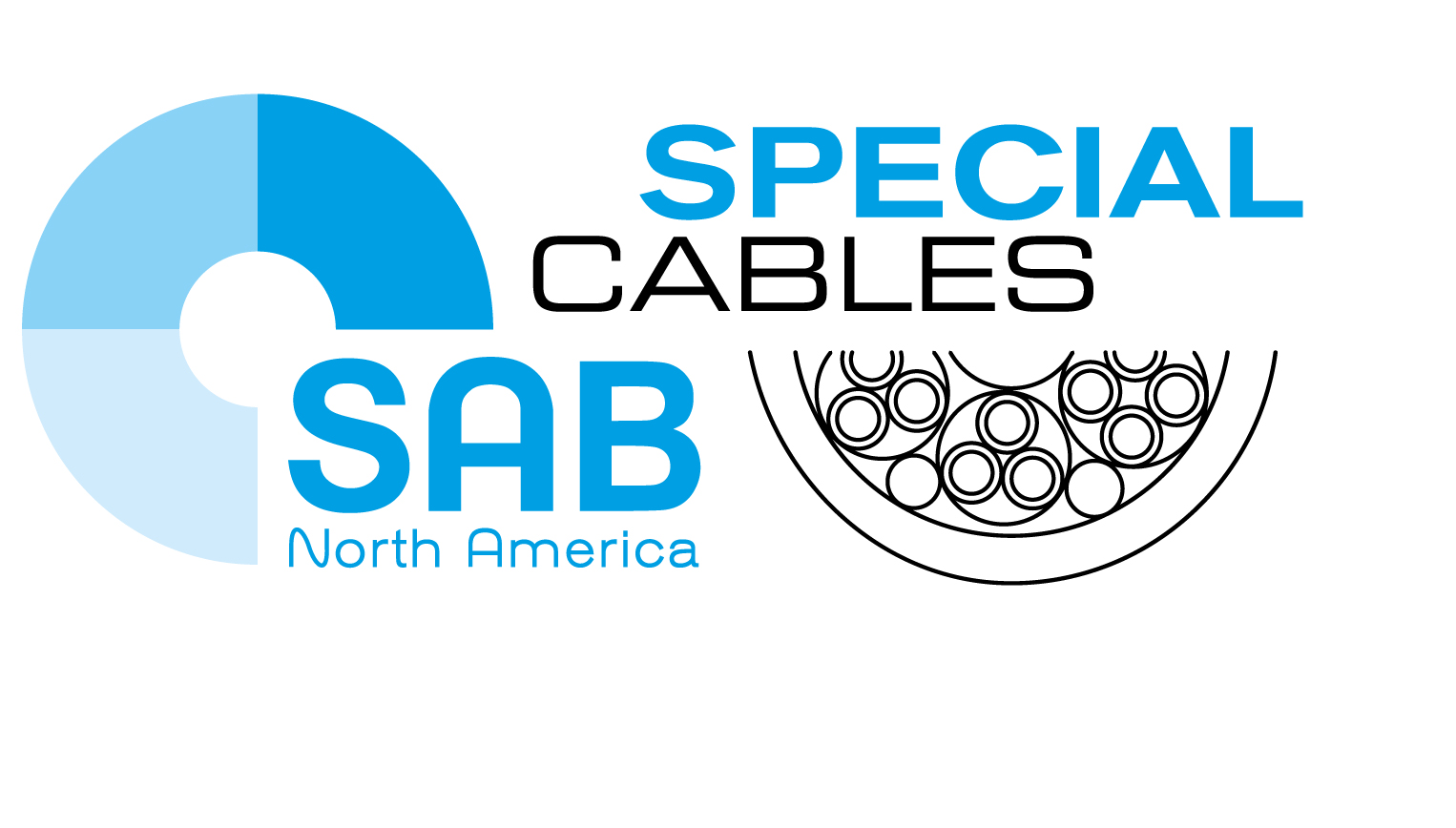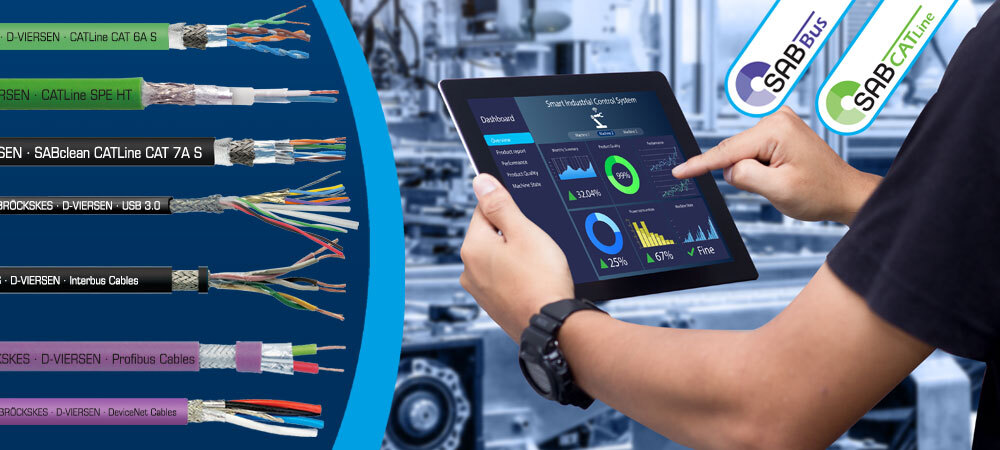As cutting-edge industrial automation technologies advance, it’s important that your networking infrastructure keeps pace. That means having cables that reliably transmit data at high speeds, perform optimally and will be able to support future network needs. Of course, the cables you choose will depend on application requirements such as distance, speed and the cable’s intended environment. This blog post will help you select the most suitable cables for bus and Ethernet applications.
Both cable types have distinctive roles in industrial networks, so your choice of cable will depend on your specific requirements. For example, Ethernet cables are designed for networks requiring data rates from 100Mbps to beyond 10Gbps, whereas bus cables support lower data rates and are known for their high reliability.
Ethernet Cables
Ethernet is characterized by its scalability, flexibility and standardization. To accommodate different network data requirements, the cables come in various categories that differ in speed, bandwidth and shielding:
- Cat 5e (Category 5e): Supports speeds up to 1 Gbps (Gigabit Ethernet) at distances up to 70/100 meters.
- Cat 6: Supports speeds up to 10 Gbps for shorter distances (up to 70/100 meters). It provides better noise reduction and is often used for high-performance networks.
- Cat 6a: Enhanced to support 10 Gbps up to 70/100 meters, it offers better shielding and is ideal for high-speed applications.
- Cat 7: Supports 10 Gbps at 100 meters, with additional shielding for reduced interference.
- SPE (Single Pair Ethernet): This networking technology uses a single twisted pair of copper wires to transmit data and power, making it ideal for industrial automation, automotive, and IoT applications.
Be sure to choose a cable that supports the maximum speed your network requires, and consider shielded Ethernet cables (STP) in industrial settings prone to interference. Flexible cables can stand up to physical stress and frequent motion. Note that Ethernet cables over 100 meters long are susceptible to signal degradation.
SAB provides Ethernet cables compatible with protocols such as PROFINET, EtherCAT and Ethernet/IP. Available in CAT 5, CAT 6 and CAT 7 categories, these cables are designed for flexibility, continuous motion applications, and resistance to chemicals and extreme temperatures. Specialized variants are available for cable tracks, robotic applications and outdoor installations.
Bus Cables
Bus cables are commonly used in industrial networks when real-time communication between devices, such as in a control network, is needed. These reliable cables transmit data across multiple devices in a synchronized way and are designed for short communication distances. Different types of bus cables include:
- CANBus cables: Used in automotive, industrial automation and robotics applications, these cables typically feature twisted pairs of wires to improve data transmission reliability over long distances.
- PROFIBUS cables: These factory automation cables come in both unshielded (UTP) and shielded (STP) versions.
- DeviceNet cables: These cables are widely used in automation systems and are available for continuous flex applications in track or torsional applications.
- USB cables: USB cable length impacts data transfer, charging speed and signal integrity. Cable runs of three feet or less provide faster data transfer and efficient power delivery. With installations longer than six feet, there is a risk of signal loss, slower speeds and reduced charging.
Bus cables are often used for longer distances and must be rated to handle the specific length and data speed. High-quality cables reduce the risk of data loss over long runs, and braided or foiled shielding is recommended to prevent EMI. They should also be rated for harsh industrial conditions such as temperature fluctuations, moisture and mechanical wear.
Designed for high-speed data transmission between sensors, actuators and control units, SAB's bus cables ensure reliable performance in demanding environments. These cables are suitable for various industrial communication protocols, including PROFIBUS, CAN bus and DeviceNet. Features include high flexibility, flame retardancy and resistance to environmental factors. Certain models, like the PROFIBUS-DP cables, feature a “Fast Connect” design for efficient installation.
Reliable, End-to-End Data Connections
When it’s time to specify data cables, look no further than SAB. We offer a wide range of Ethernet and bus cable products, material and shielding options plus customization capabilities to ensure reliable end-to-end connectivity and communications for your network.
For more information about SAB data cables, download our brochure.


